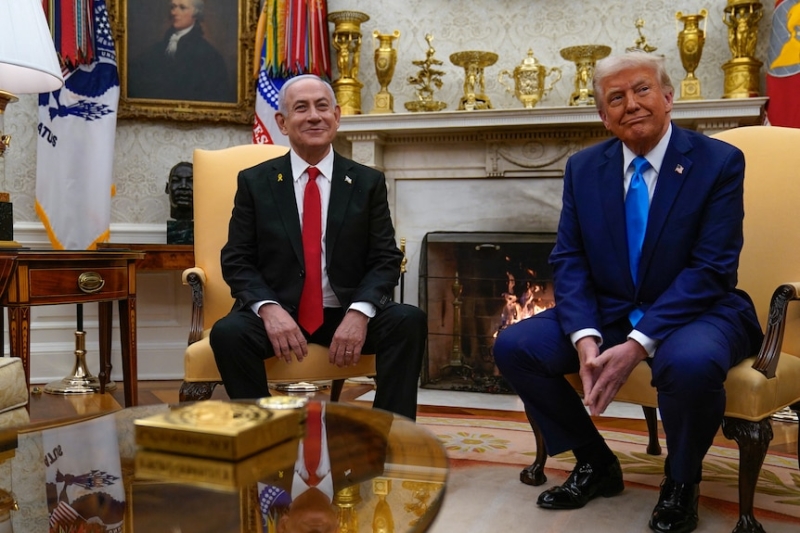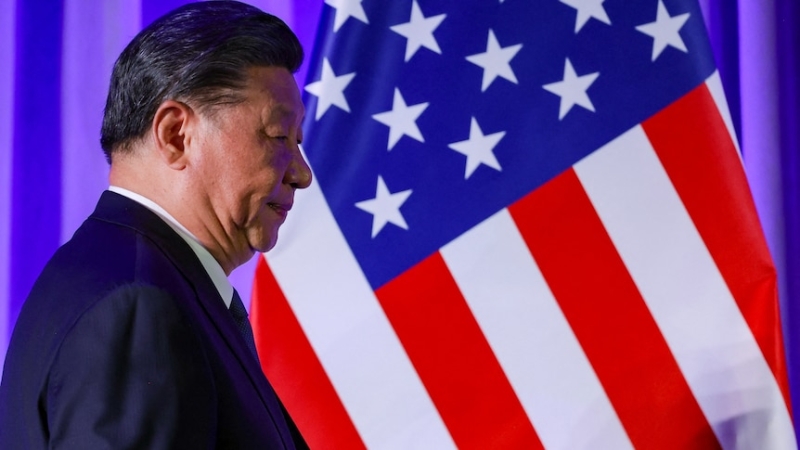In short:
Donald Trump has suggested during a visit by Israeli Prime Minister Benjamin Netanyahu to the White House that the United States "will take over the Gaza Strip".
Mr Trump also suggested Palestinians could be permanently relocated from Gaza to neighbouring nations.
What's next?
Mr Netanyahu will also meet with members of the US military and Congress for further talks later this week. Donald Trump is set to host the King of Jordan next week to discuss the next phase of the ceasefire deal.
US President Donald Trump has suggested the United States "will take over the Gaza strip" during a visit by Israeli Prime Minister Benjamin Netanyahu to the White House.
The meeting marked the first in-person visit by a foreign leader since Mr Trump returned to office two weeks ago, and an effort to turn the page on sometimes tense relations with former president Joe Biden.
Speaking from the White House, the US president said Palestinians should be permanently relocated from Gaza and moved to different countries, saying Gaza was now a "demolition site" that no-one would want to live in.
Mr Trump said neighbouring countries "of great wealth" could fund the resettlement and people could be moved to either one large site or numerous sites.
Arab nations, including America's regional allies Jordan and Egypt, as well as Palestinian leaders, have vehemently rejected the idea.
When asked earlier today if this would amount to forced displacement, Mr Trump claimed Gazans would love the opportunity to move.
Donald Trump and Benjamin Netanyahu met in the White House Oval Office. (Reuters: Elizabeth Frantz)
"We want to give people a chance at life. They have never had a chance at life because the Gaza Strip has been a hell hole for people living there," Mr Trump said.
Pressed for more details, the president said he could see the US having "a long-term ownership position".
"I see it bringing great stability to that part of the Middle East and maybe the entire Middle East," he said.
"Everybody I've spoken to loves the idea of the United States owning that piece of land, developing and creating thousands of jobs with something that will be magnificent."
When asked if the United States would send troops into Gaza, Mr Trump said: "We'll do what's necessary."
"If it's necessary, we'll do that," he said.
"We're going to take over that piece, we're going to develop it, create thousands and thousands of jobs and it'll be something the entire Middle East can be very proud of."
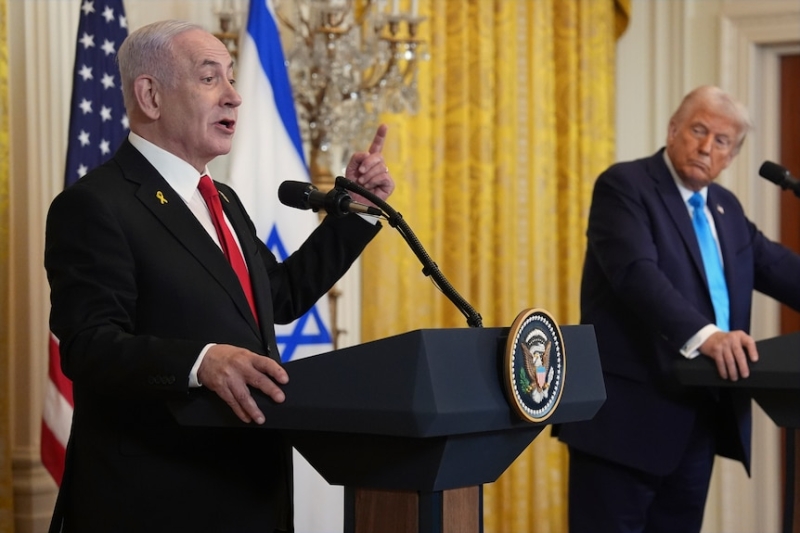
Benjamin Netanyahu told Mr Trump "Israel's victory will be America's victory". (AP: Evan Vucci)
Mr Netanyahu thanked the US president for his unwavering support of Israel, including his decision to recognise Jerusalem as Israel's capital and for brokering the Abraham Accords.
"You are the greatest friend Israel has ever had in the White House," Mr Netanyahu said.
"Now, in the first days of your second term, you picked up right where you left off your leadership to help bring our hostages home."
"Mr President, ladies and gentlemen, Israel will end the war by winning the war," Mr Netanyahu said.
"Israel's victory will be America's victory."
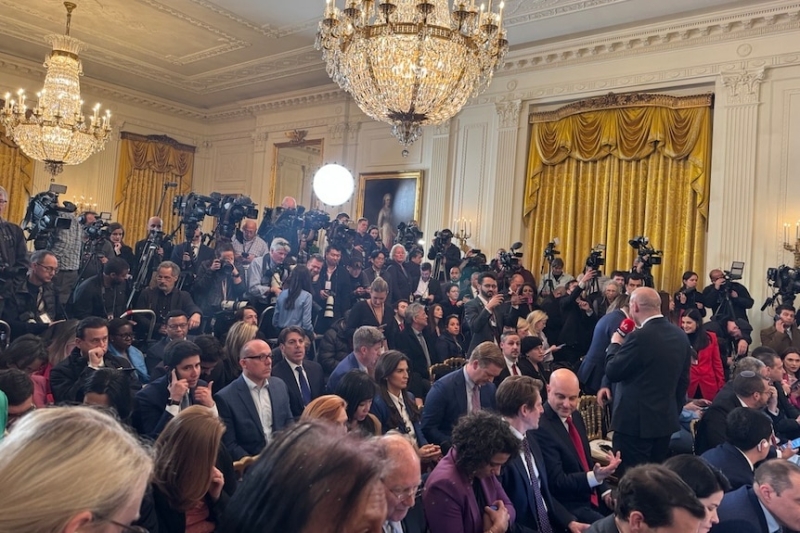
The East Room at the White House was packed with the world's media as reporters waiting for the leaders to deliver remarks. (ABC News: Carrington Clarke)
Earlier, the pair met at the White House for critical talks on the future of the fragile ceasefire deal between Israel and Hamas.
Their meeting coincides with the start of mediation efforts between Israel and Hamas on the crucial second stage of the ceasefire deal and hostage release.
The second stage of the ceasefire deal is hoped to pave the way to ending the war, with the release of all hostages and a full Israeli military withdrawal from Gaza.
The region is at a critical juncture, with the Gaza truce fragile, a parallel Israel-Hezbollah ceasefire agreement in Lebanon nearing possible expiration, and concerns about Iran's nuclear ambitions.
Prior to their meeting, Mr Trump signed a string of new orders, including a presidential memorandum meant to block Iran from achieving a nuclear weapon and to limit its oil exports.
He also signed a directive to stop US engagement with the United Nations Human Rights Council and continue a halt to funding for the UN Palestinian relief agency UNRWA.
'Why would they want to return?'
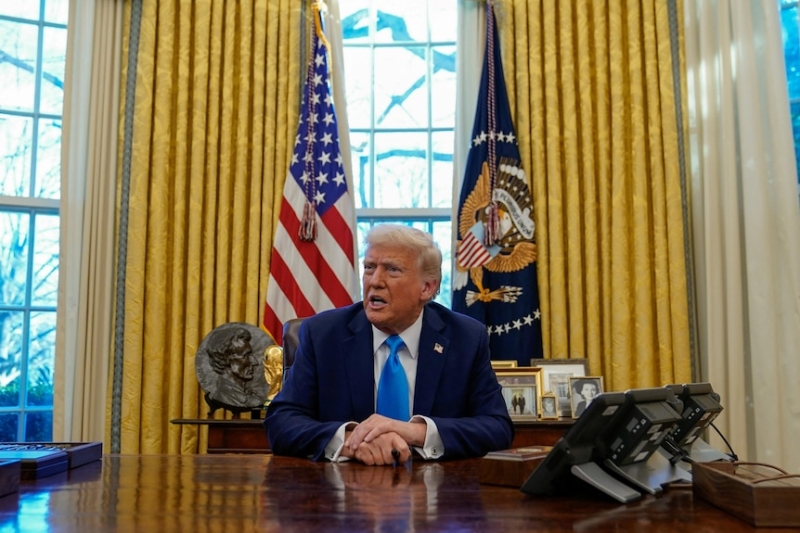
Donald Trump spoke to the press after signing a memo that aims to block Iran from achieving a nuclear weapon. (Reuters: Elizabeth Frantz)
The US president's comments about the Gaza Strip sparked concern Palestinians could be permanently driven from their homes.
When reporters pressed the president in an early press conference on why Palestinians would want to leave Gaza, Mr Trump said: "Why would they want to return? The place has been hell".
"You could build four or five or six areas. It doesn't have to be one area, but you take certain areas and you build really good quality housing, like a beautiful town."
Asked if Palestinians would have the right to return to Gaza if they left while the rebuilding was happening, the president said: "It would be my hope that we could do something really nice, really good, where they wouldn't want to return."
The president's comments come as tens of thousands of Palestinians return to Gaza's north after 15 months of war that has killed more than 61,000 Palestinians, according to Gaza officials, who have added thousands more missing and now presumed dead to the death toll.
Faisal Aranki, a member of the Palestine Liberation Organization (PLO) Executive Committee, reportedly told Newsweek Mr Trump's proposal was controversial and raised "many humanitarian and political issues".
"On the one hand, some see it as an immoral step that exposes Palestinians to additional suffering, especially since the forced displacement of people is a violation of human rights and leads to further escalation and conflict," Mr Aranki told Newsweek.
"On the other hand, some may see it as part of an attempt to find a long-term solution to the Palestinian issue," he continued, "but there are always concerns that such solutions marginalise the basic rights of Palestinians to return and live in dignity on their land."
Trump to meet with king of Jordan
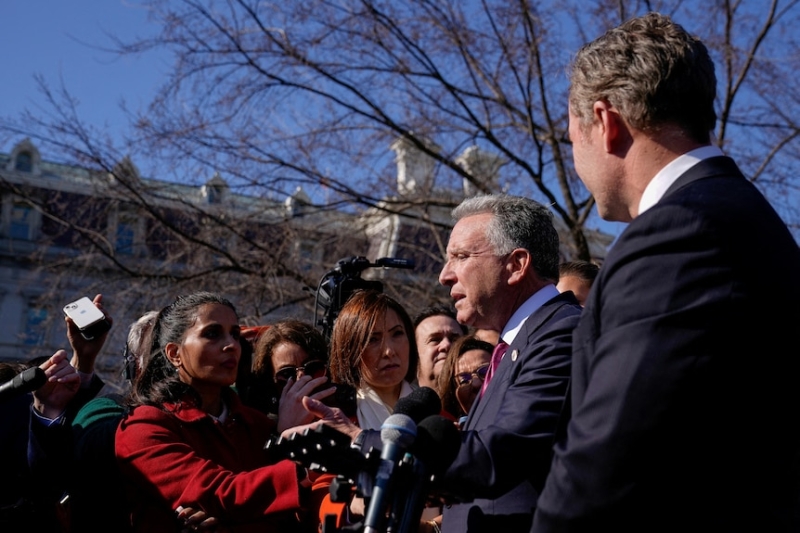
Steve Witkoff and Michael Waltz address the press prior to the Trump-Netanyahu talks. (Reuters: Elizabeth Frantz)
Later in the week, Mr Netanyahu is expected to meet with US military leaders at the Pentagon and members of congress, having already met with senior US officials earlier this week.
Senior officials confirmed King Abdullah II of Jordan was expected to visit the US next week to meet with Mr Trump.
US special envoy to the Middle East Steve Witkoff also announced plans to meet with Qatari Prime Minister Mohammed bin Abdulrahman Bin Jassim Al Thani in Florida on Thursday, local time.
The Gulf nation has served as an important mediator in the negotiations to secure a ceasefire and ensure the release of hostages.
"We'll be going over all these things with him … so we're all dug in," Mr Witkoff said.
"Part of the problem is that it wasn't such a wonderful agreement that was first signed.
"That was not dictated by the Trump administration. We had nothing to do with it. So now we're working within that rubric and we're figuring things out."
with wires

